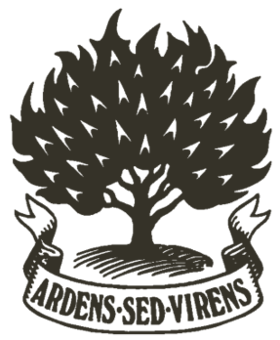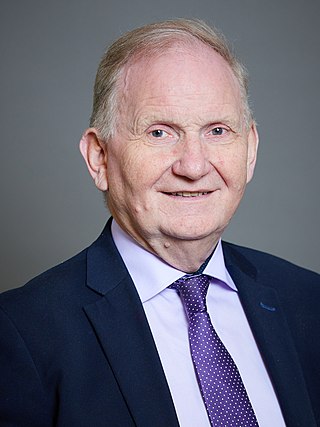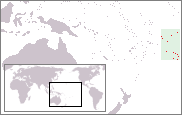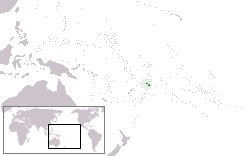
Ian Richard Kyle Paisley, Baron Bannside, was a loyalist politician and Protestant religious leader from Northern Ireland who served as leader of the Democratic Unionist Party (DUP) from 1971 to 2008 and First Minister of Northern Ireland from 2007 to 2008.

Ian Richard Kyle Paisley Jr is a former Northern Irish unionist politician. A member of the Democratic Unionist Party (DUP), he served as the Member of Parliament (MP) for North Antrim from 2010 to 2024, and was previously a member of the Northern Ireland Assembly for North Antrim from 1998 to 2010. Paisley is the DUP's Spokesperson for Digital, Culture, Media and Sports. He is a son of the DUP's founder Ian Paisley.

The Democratic Unionist Party (DUP) is a unionist, loyalist, British nationalist and national conservative political party in Northern Ireland. It was founded in 1971 during the Troubles by Ian Paisley, who led the party for the next 37 years. It is currently led by Gavin Robinson, who initially stepped in as an interim after the resignation of Jeffrey Donaldson. It is the second-largest party in the Northern Ireland Assembly, and won five seats in the House of Commons of the United Kingdom at the 2024 election. The party has been mostly described as right-wing and socially conservative, being anti-abortion and opposing same-sex marriage. The DUP sees itself as defending Britishness and Ulster Protestant culture against Irish nationalism and republicanism. It is also Eurosceptic and supported Brexit.

Iris Robinson is a former Democratic Unionist Party (DUP) politician in Northern Ireland. She is married to Peter Robinson, who was First Minister of Northern Ireland from 2008 to 2016.

James Hugh Allister is a Northern Irish politician and barrister who has served as Member of Parliament (MP) for North Antrim since the 2024 general election. He founded the Traditional Unionist Voice (TUV) in 2007 and has led the party since its formation. Prior to his election to Westminster, Allister was a member of the Legislative Assembly (MLA) for North Antrim, having been first elected in the 2011 Assembly election.
Dudgeon v United Kingdom (1981) was a European Court of Human Rights (ECtHR) case, which held that Section 11 of the Criminal Law Amendment Act 1885, which criminalised male homosexual acts in England, Wales and Northern Ireland, breached the defendant's rights under Article 8 of the European Convention on Human Rights.

The Free Presbyterian Church of Ulster is a Calvinist denomination founded by Ian Paisley in 1951. Doctrinally, the church describes itself as fundamentalist, evangelical, and separatist, and is part of the reformed fundamentalist movement. Most of its members live in Northern Ireland, where the church is headquartered, and in County Donegal. The church has additional congregations in the Republic of Ireland, Great Britain and Australia, and a sister denomination in North America, the Free Presbyterian Church of North America, which has congregations in Canada and the United States. It also has a sister denomination in Nepal which was formed from the Nepal mission to the Unreached in November 2013.

The rights of lesbian, gay, bisexual, and transgender (LGBTQ) people in the United Kingdom of Great Britain and Northern Ireland have developed significantly over time. Today, lesbian, gay and bisexual rights are considered to be advanced by international standards.

The Homosexual Law Reform Act 1986 is a New Zealand Act of Parliament that broadly legalised consensual sexual practices between men as well as consensual anal sex regardless of partners' gender. It removed the provisions of the Crimes Act 1961 that criminalised this behaviour. The legislation established a uniform age of consent, setting it at 16 for both same-sex and opposite-sex partners.

Maurice George Morrow, Baron Morrow is a Unionist politician from Northern Ireland representing the Democratic Unionist Party (DUP) who has been Chairman of the DUP since 2000. He was made a life peer in June 2006. He was also a councillor on Dungannon and South Tyrone Borough Council representing Dungannon Town.

Lesbian, gay, bisexual, and transgender (LGBT) rights in the British Crown dependency of the Isle of Man have evolved substantially since the early 2000s. Private and consensual acts of male homosexuality on the island were decriminalised in 1992. LGBTQ rights have been extended and recognised in law since then, such as an equal age of consent (2006), employment protection from discrimination (2006), gender identity recognition (2009), the right to enter into a civil partnership (2011), the right to adopt children (2011) and the right to enter into a civil marriage (2016).
Section 171 of the Criminal Code of Cyprus was a section of the Cyprus Criminal Code, which was enacted in 1929, that criminalized homosexual acts between consenting male adults. Until 1998, the section read:
"Any person who (a) has carnal knowledge of any person against the order of nature, or (b) permits a male person to have carnal knowledge of him against the order of nature is guilty of a felony and is liable to imprisonment for five years".

Lesbian, gay, bisexual, and transgender (LGBT) rights in Scotland are generally in line with the rest of the United Kingdom, which have evolved extensively over time and are now regarded as some of the most progressive in Europe. In both 2015 and 2016, Scotland was recognised as the "best country in Europe for LGBTI legal equality".

Lesbian, gay, bisexual, and transgender (LGBT) people in Northern Ireland enjoy most of the same rights as non-LGBT people. However, the advancement of LGBT rights has traditionally been slower than the rest of the United Kingdom, with the region having lagged behind England, Scotland, and Wales. Northern Ireland was the last part of the United Kingdom where same-sex sexual activity was decriminalised, the last to implement a blood donation “monogamous no waiting period” policy system for men who have sex with men and, after intervention by the Parliament of the United Kingdom, the last to allow same-sex marriage. Compared to the neighbouring Republic of Ireland, all major LGBT rights milestones had been reached earlier in Northern Ireland, with the exception of same-sex marriage. Homosexuality was decriminalised in Northern Ireland a decade earlier and civil partnerships were introduced six years earlier.
Same-sex marriage has been legal in Northern Ireland since 13 January 2020, following the enactment of the Northern Ireland Act 2019. The first marriage ceremony took place on 11 February 2020. Civil partnerships have also been available for same-sex couples in Northern Ireland since their introduction by the Government of the United Kingdom in 2005.

A sodomy law is a law that defines certain sexual acts as crimes. The precise sexual acts meant by the term sodomy are rarely spelled out in the law, but are typically understood and defined by many courts and jurisdictions to include any or all forms of sexual acts that are illegal, illicit, unlawful, unnatural and immoral. Sodomy typically includes anal sex, oral sex, manual sex, and bestiality. In practice, sodomy laws have rarely been enforced to target against sexual activities between individuals of the opposite sex, and have mostly been used to target against sexual activities between individuals of the same sex.

Lesbian, gay, bisexual, and transgender (LGBT) people in the Cook Islands face some legal challenges not experienced by non-LGBTQ residents, but these challenges have gradually lessened in recent years. As of 1 June 2023, homosexual acts between men became legal in the Cook Islands after a vote by the Parliament of the Cook Islands. Female homosexual acts have never been illegal. Same-sex marriage is outlawed. Nevertheless, LGBT people do enjoy some limited legal protections, as employment discrimination on the basis of sexual orientation has been banned since 2013.

Lesbian, gay, bisexual, and transgender (LGBT) people in Samoa face legal challenges not faced by non-LGBT residents. Sexual contact between men is illegal, punishable by up to seven years’ imprisonment, but the law is not enforced.
Nauru is a small island nation in Oceania.

The following is a timeline of lesbian, gay, bisexual, and transgender (LGBT) history in the 20th century.
















